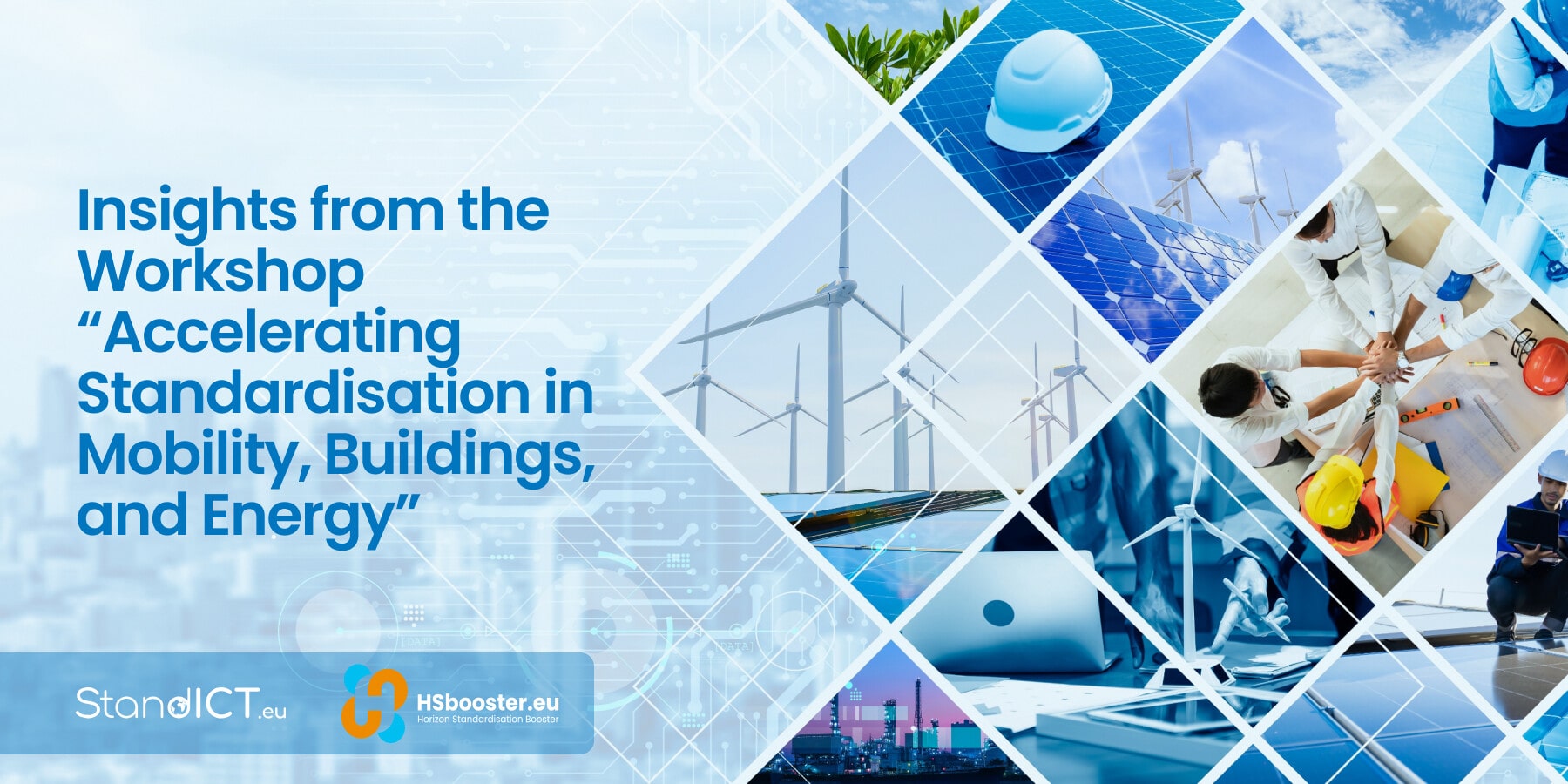On January 31, AIOTI held the Workshop Accelerating standardisation in the nexus of mobility, buildings and energy, in collaboration with the European Commission's DG Connect, IoT Unit, and with the support of HSBooster.eu. The event addressed the acceleration of standardisation across the domains of mobility, buildings, and energy. This workshop dealt with themes that align with the European Commission's strategy to achieve net-zero emissions through clean electrification, highlighting the pivotal role of open standards in facilitating the transition towards a green and digital economy.
The workshop was opened by Rolf Riemenschneider, Head of Sector IoT at the European Commission, who highlighted the importance of integration of diverse ecosystems through multi-standard interfaces and the facilitation of seamless data flows within the energy domain, as this sector acts as a connector across mobility and building automation. For example, energy is critical in powering electric vehicles (EVs), thus connecting the mobility sector with renewable energy sources. Similarly, in building automation, energy efficiency and management systems rely on smart grids to optimise energy use and support sustainable practices. All these sectors are ultimately crucial for advancing Europe's sustainability goals.
The workshop eventually resulted in a booklet and supportive guide that provides thematic-oriented standardisation insights in the nexus of mobility, buildings and energy. The publication was prepared under the overall engagement and authorship of Dr. Eusebiu Catana (Senior manager of innovation and deployment, ERTICO-ITS Europe, involved in ISO/TC204, StandICT.eu), Dr. Aikaterini Poustourli (IHU, involved in ISO/TC292, CEN/TC391 and STAIR; HSbooster.eu expert), and Marga Martin Sanchez (Standardisation expert at HSbooster.eu).
GET YOUR COPY
The event was also an opportunity to provide the audience with practical information on the StandICT.eu and HSbooster.eu opportunities for standardisation experts and projects. The panel brought together industry experts and representatives from standardisation initiatives to explore the current landscape of industrial associations, their engagement with Standard Development Organisations (SDOs), and strategies for expediting the standardisation process.
The panel featured Marga Martin Sanchez, Programme Manager at the European Association for Data and Cloud AISBL, Eusebiu Catana, Senior Manager in the Innovation and Deployment Department at ERTICO-ITS Europe, and Dr. Aikaterini Poustourli, Scientific and Technical Officer at the International Hellenic University. These panellists, supported by HSbooster.eu and included in HSbooster.eu pool of experts, shared insights on the significance of standardisation efforts within their respective fields.
Additionally, the panel discussion featured contributions from Reyna Ubeda, Project Officer at the International Telecommunication Union’s Standardisation Bureau, and Tanya Suarez, BluSpecs, AIOTI Management Board Member and coordinator of the recently kicked-off INSTAR project, further enriching the dialogue with their expertise and perspectives on standardisation and interoperability across these interconnected sectors.
The discussion emphasised the necessity of developing horizontal and cross-sector interoperability standards. Such standards are essential for ensuring effective communication within and between intelligent transport and energy systems, promoting the integration of renewable energy sources, and enhancing the efficiency of electric vehicle charging infrastructures. There was a strong emphasis on the significance of projects and Small and Medium-sized Enterprises (SMEs) actively engaging with standardisation bodies at the early stages of project development.
The panel highlighted the importance of integrating global and international standards into the initial phases of project planning. This approach ensures that the developed solutions are versatile and potentially applicable beyond the European Union. This approach helps establishing a sustainable, interoperable infrastructure that aligns with international best practices and facilitates global market access. Overall, the workshop highlighted the collective effort required to advance standardisation in critical sectors for Europe's green transformation. By fostering collaboration between different domains, industry stakeholders, and standardisation bodies, the event laid the groundwork for the implementation of upcoming EU-funded projects that will work on pilots on emerging Smart IoT Platforms and decentralised intelligence.


